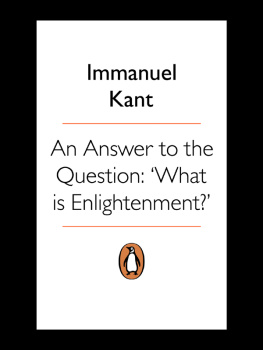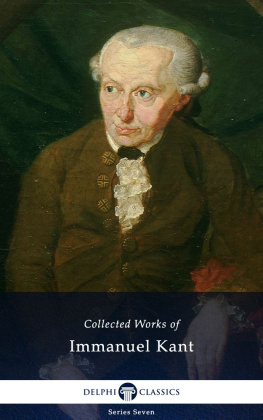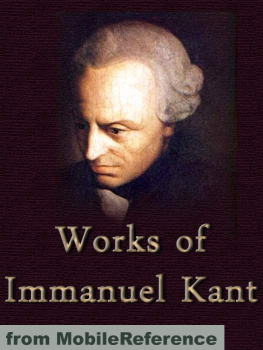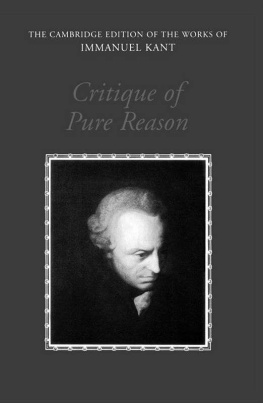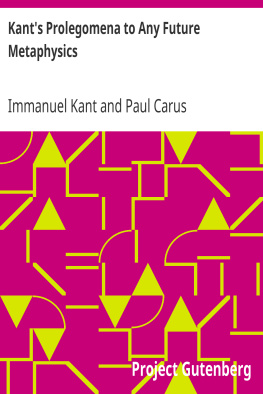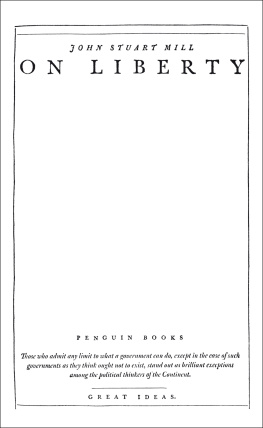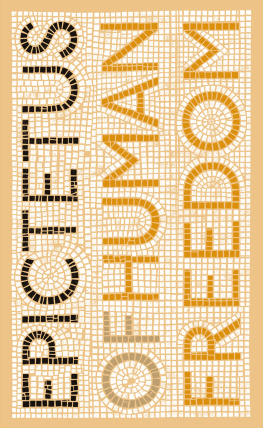Contents
Immanuel Kant
AN ANSWER TO THE QUESTION:
WHAT IS ENLIGHTENMENT?
Translated by H. B. Nisbet
Immanuel Kant
17241804
An Answer to the Question: What is Enlightenment?
Enlightenment is mans emergence from his self-incurred immaturity. Immaturity is the inability to use ones own understanding without the guidance of another. This immaturity is self-incurred if its cause is not lack of understanding, but lack of resolution and courage to use it without the guidance of another. The motto of enlightenment is therefore: Sapere aude! [Dare to be wise!] Have courage to use your own understanding!
Laziness and cowardice are the reasons why such a large proportion of men, even when nature has long emancipated them from alien guidance (naturaliter maiorennes [Those who have come of age by virtue of nature]), nevertheless gladly remain immature for life. For the same reasons, it is all too easy for others to set themselves up as their guardians. It is so convenient to be immature! If I have a book to have understanding in place of me, a spiritual adviser to have a conscience for me, a doctor to judge my diet for me, and so on, I need not make any efforts at all. I need not think, so long as I can pay; others will soon enough take the tiresome job over for me. The guardians who have kindly taken upon themselves the work of supervision will soon see to it that by far the largest part of mankind (including the entire fair sex) should consider the step forward to maturity not only as difficult but also as highly dangerous. Having first infatuated their domesticated animals, and carefully prevented the docile creatures from daring to take a single step without the leading-strings to which they are tied, they next show them the danger which threatens them if they try to walk unaided. Now this danger is not in fact so very great, for they would certainly learn to walk eventually after a few falls. But an example of this kind is intimidating, and usually frightens them off from further attempts.
Thus it is difficult for each separate individual to work his way out of the immaturity which has become almost second nature to him. He has even grown fond of it and is really incapable for the time being of using his own understanding, because he was never allowed to make the attempt. Dogmas and formulas, those mechanical instruments for rational use (or rather misuse) of his natural endowments, are the ball and chain of his permanent immaturity. And if anyone did throw them off, he would still be uncertain about jumping over even the narrowest of trenches, for he would be unaccustomed to free movement of this kind. Thus only a few, by cultivating their own minds, have succeeded in freeing themselves from immaturity and in continuing boldly on their way.
There is more chance of an entire public enlightening itself. This is indeed almost inevitable, if only the public concerned is left in freedom. For there will always be a few who think for themselves, even among those appointed as guardians of the common mass. Such guardians, once they have themselves thrown off the yoke of immaturity, will disseminate the spirit of rational respect for personal value and for the duty of all men to think for themselves. The remarkable thing about this is that if the public, which was previously put under this yoke by the guardians, is suitably stirred up by some of the latter who are incapable of enlightenment, it may subsequently compel the guardians themselves to remain under the yoke. For it is very harmful to propagate prejudices, because they finally avenge themselves on the very people who first encouraged them (or whose predecessors did so). Thus a public can only achieve enlightenment slowly. A revolution may well put an end to autocratic despotism and to rapacious or power-seeking oppression, but it will never produce a true reform in ways of thinking. Instead, new prejudices, like the ones they replaced, will serve as a leash to control the great unthinking mass.
For enlightenment of this kind, all that is needed is freedom. And the freedom in question is the most innocuous form of all freedom to make public use of ones reason in all matters. But I hear on all sides the cry: Dont argue! The officer says: Dont argue, get on parade! The tax-official: Dont argue, pay! The clergyman: Dont argue, believe! (Only one ruler in the world says: Argue as much as you like and about whatever you like, but obey!) All this means restrictions on freedom everywhere. But which sort of restriction prevents enlightenment, and which, instead of hindering it, can actually promote it? I reply: The public use of mans reason must always be free, and it alone can bring about enlightenment among men; the private use of reason may quite often be very narrowly restricted, however, without undue hindrance to the progress of enlightenment. But by the public use of ones own reason I mean that use which anyone may make of it as a man of learning addressing the entire reading public. What I term the private use of reason is that which a person may make of it in a particular civil post or office with which he is entrusted.
Now in some affairs which affect the interests of the commonwealth, we require a certain mechanism whereby some members of the commonwealth must behave purely passively, so that they may, by an artificial common agreement, be employed by the government for public ends (or at least deterred from vitiating them). It is, of course, impermissible to argue in such cases; obedience is imperative. But in so far as this or that individual who acts as part of the machine also considers himself as a member of a complete commonwealth or even of cosmopolitan society, and thence as a man of learning who may through his writings address a public in the truest sense of the word, he may indeed argue without harming the affairs in which he is employed for some of the time in a passive capacity. Thus it would be very harmful if an officer receiving an order from his superiors were to quibble openly, while on duty, about the appropriateness or usefulness of the order in question. He must simply obey. But he cannot reasonably be banned from making observations as a man of learning on the errors in the military service, and from submitting these to his public for judgement. The citizen cannot refuse to pay the taxes imposed upon him; presumptuous criticisms of such taxes, where someone is called upon to pay them, may be punished as an outrage which could lead to general insubordination. Nonetheless, the same citizen does not contravene his civil obligations if, as a learned individual, he publicly voices his thoughts on the impropriety or even injustice of such fiscal measures. In the same way, a clergyman is bound to instruct his pupils and his congregation in accordance with the doctrines of the church he serves, for he was employed by it on that condition. But as a scholar, he is completely free as well as obliged to impart to the public all his carefully considered, well-intentioned thoughts on the mistaken aspects of those doctrines, and to offer suggestions for a better arrangement of religious and ecclesiastical affairs. And there is nothing in this which need trouble the conscience. For what he teaches in pursuit of his duties as an active servant of the church is presented by him as something which he is not empowered to teach at his own discretion, but which he is employed to expound in a prescribed manner and in someone elses name. He will say: Our church teaches this or that, and these are the arguments it uses. He then extracts as much practical value as possible for his congregation from precepts to which he would not himself subscribe with full conviction, but which he can nevertheless undertake to expound, since it is not in fact wholly impossible that they may contain truth. At all events, nothing opposed to the essence of religion is present in such doctrines. For if the clergyman thought he could find anything of this sort in them, he would not be able to carry out his official duties in good conscience, and would have to resign. Thus the use which someone employed as a teacher makes of his reason in the presence of his congregation is purely

